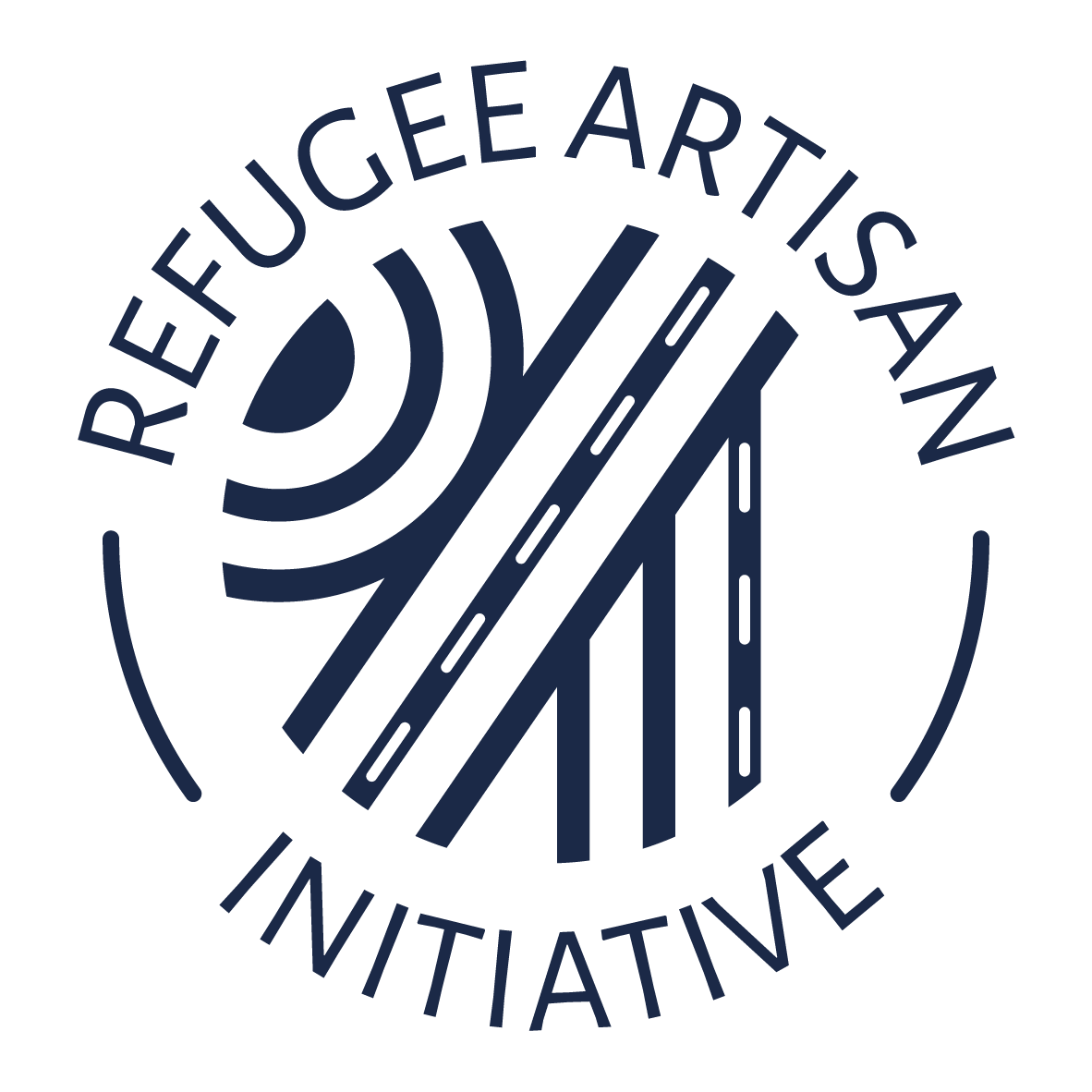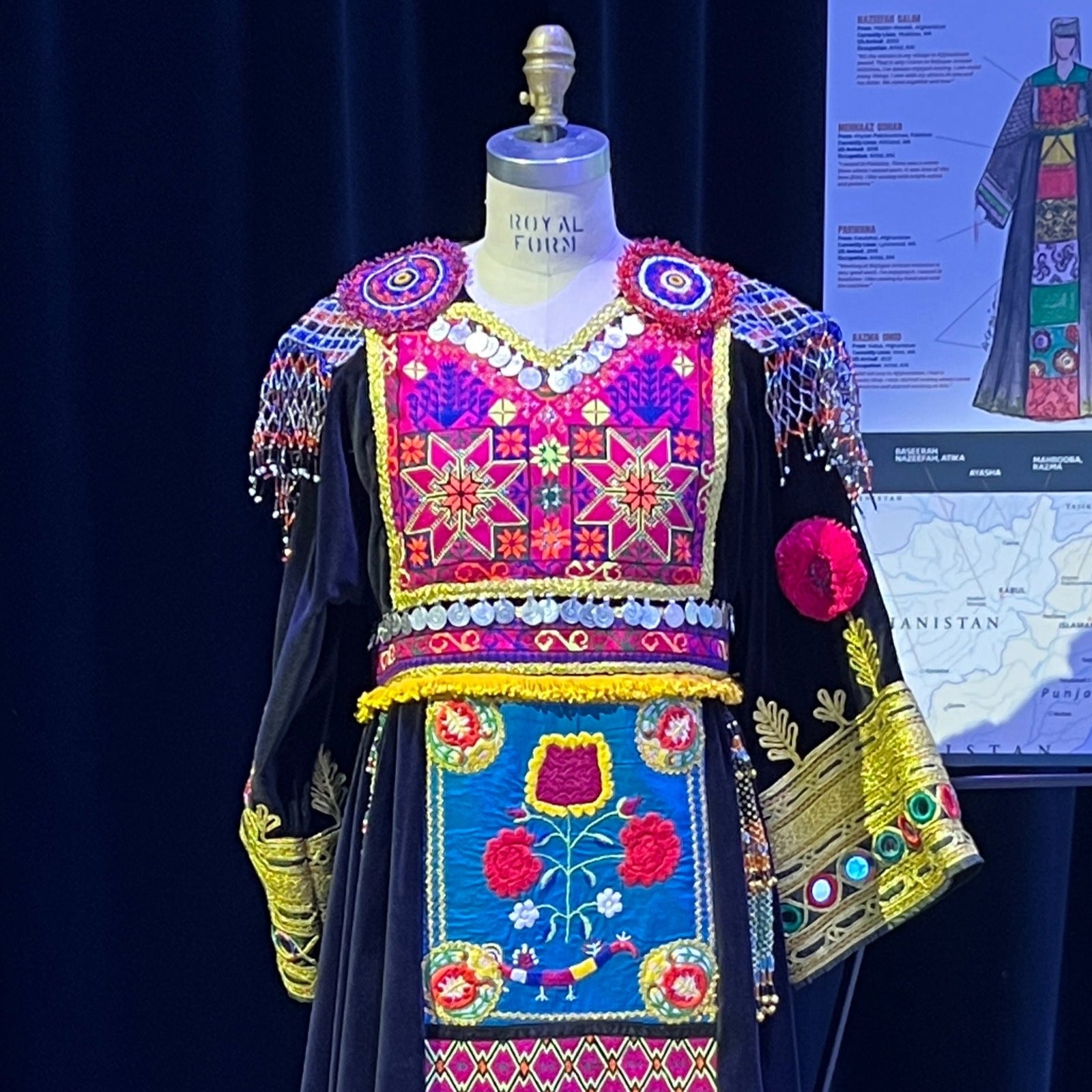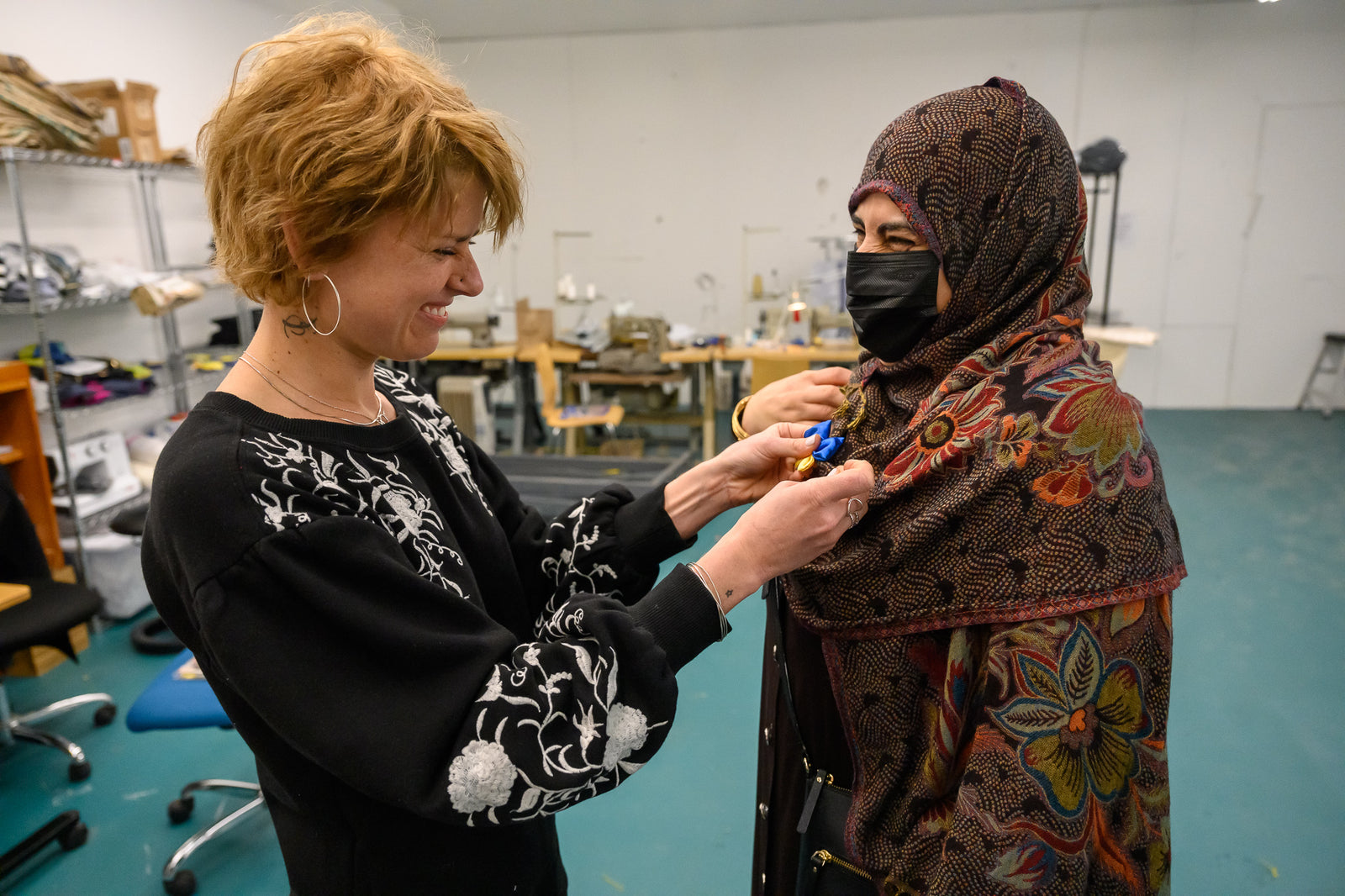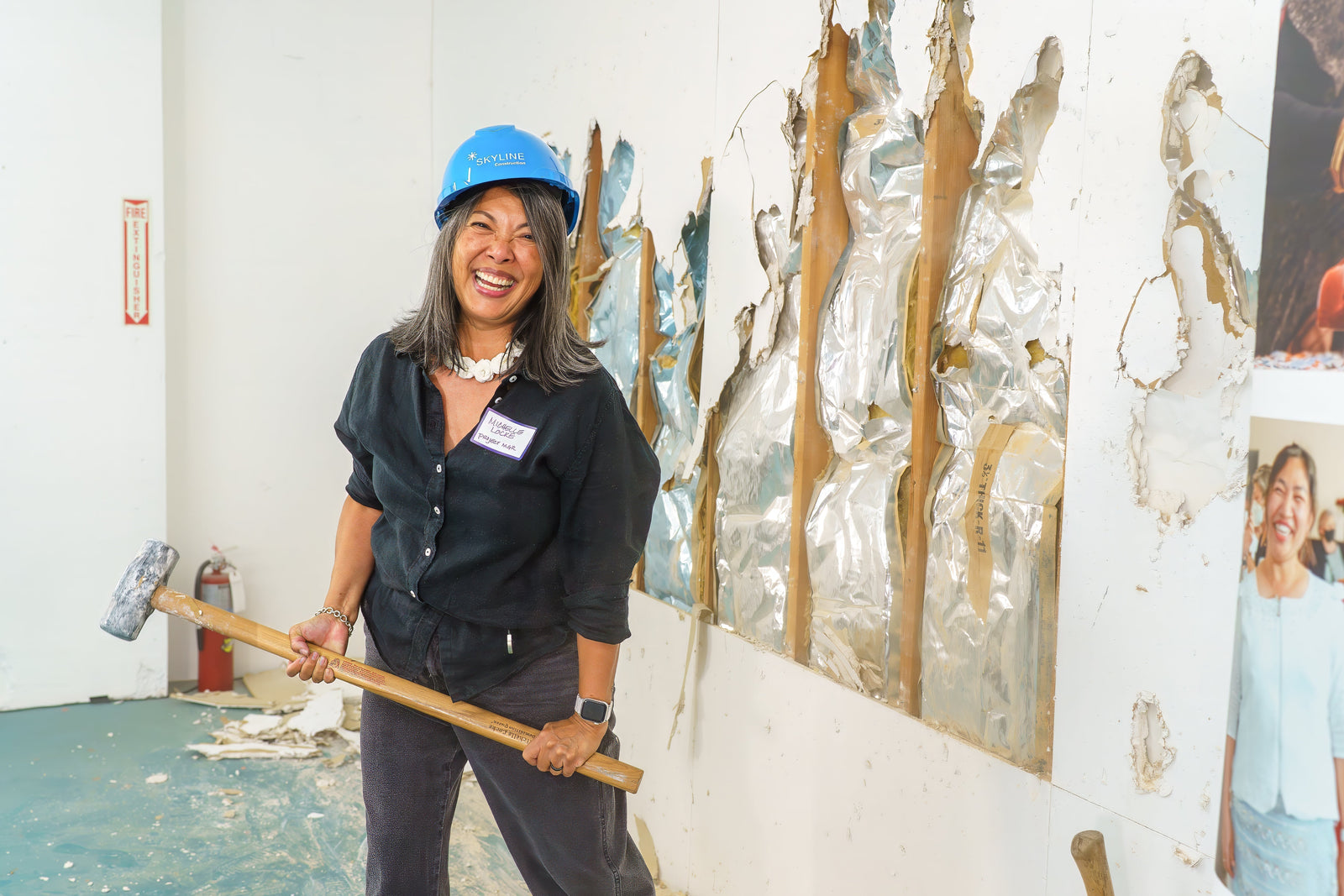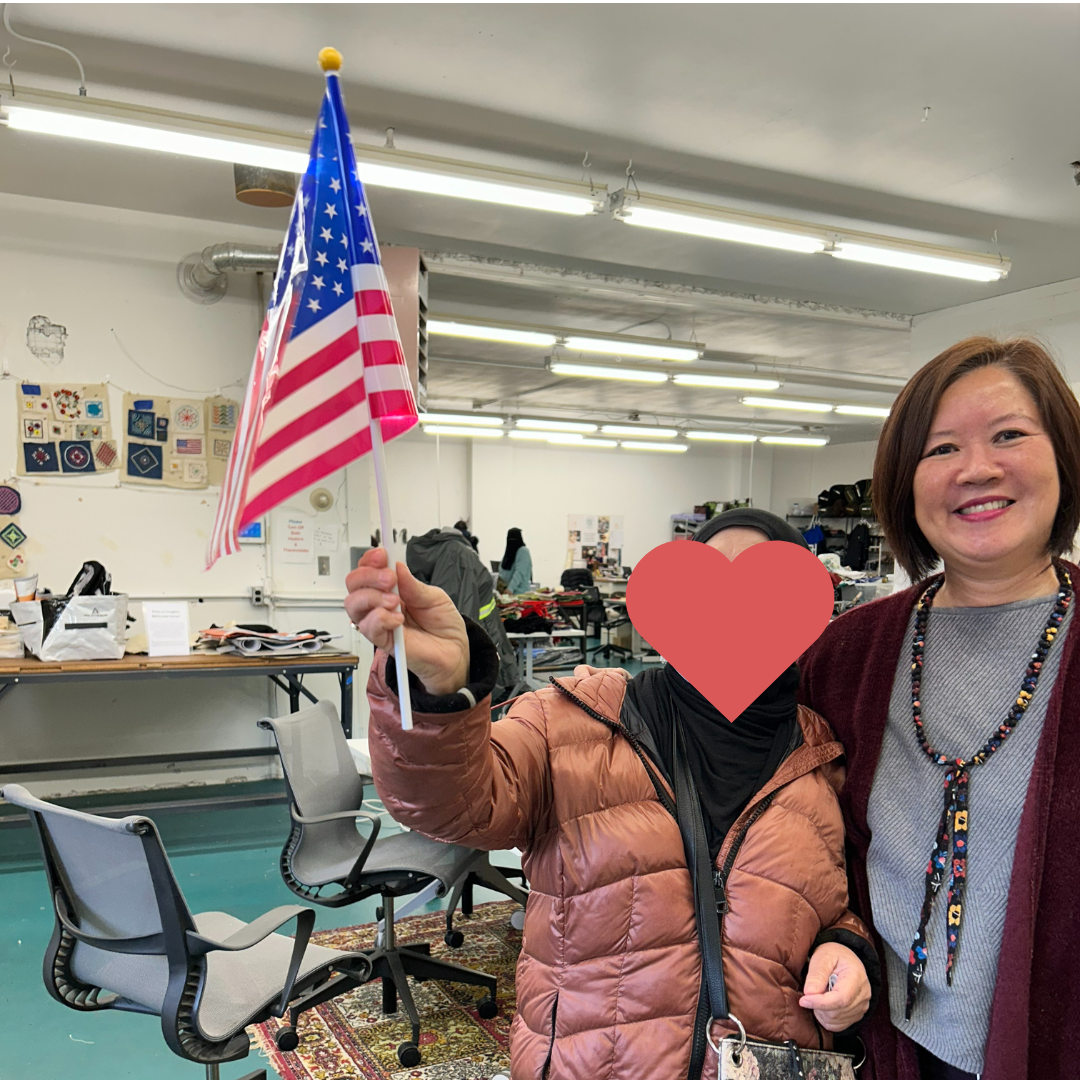April 9, 2022
Author: Julia Park
[This article originally appeared in The Daily and is reprinted here with permission]
-----
Mohammad Halimyar proudly displayed his wife Farida’s home sewing station. A sewing machine rested among pieces of unfinished projects, including a blue and yellow satin pin in the shape of a butterfly.
Before their arrival in the United States in 2019, Farida Halimyar had been a tailor in Afghanistan for 10 years and Mohammad Halimyar had worked as an interpreter for the U.S. Army. Once Mohammad Halimyar’s connection to the U.S. military began to pose safety risks for his family, he was able to obtain a Special Immigrant Visa to immigrate to the United States.
Once a week, the Halimyars share a meal with friends; they enjoy a good relationship with a small group of Afghan friends as well as the broader community that has helped them, Mohammad Halimyar said.
“We are happy,” Mohammad Halimyar said.
In compliance with the Biden administration’s Operation Allies Welcome effort, Washington state partnered with several organizations to welcome and help resettle Afghan refugees, according to the Washington State Department of Social and Health Services (DSHS).
Refugees generally undergo a more stringent screening process than any other type of immigrant, according to the Bipartisan Policy Center. Even after that, the process of resettlement extends far beyond a refugee’s first step off of a plane in the United States. Integrating into a new community takes time, and properly welcoming refugees requires a collective effort.
Local government and community organizations in the Seattle area are working hard to make that process easier.
The Seattle-Tacoma International (SEA) Airport had an important role to play in welcoming refugees who were flying in on commercial flights after evacuating their home countries. Born to Korean immigrant parents, and thus empathetic to the challenges of immigration, Port of Seattle commissioner Sam Cho and his staff moved quickly to arrange wraparound services for Afghan refugees arriving in Seattle.
Working with refugee resettlement agencies, the Port of Seattle established a welcome center within SEA Airport specifically for refugees to access food and other essentials after disembarking. The port also granted resettlement agents the ability to bypass security and meet refugees at the gate after arrival. This meant refugees wouldn’t need to navigate the airport on their own, Cho said.
“I think one of the biggest misnomers about refugees is that they're kind of like random people who just want to be in the U.S.,” Cho said. “In my experience … these are not random people who just decided to leave Afghanistan. These are people who, if they stayed, … would have been killed by the Taliban because they helped the United States.”
Afghan refugees who risked their lives include interpreters and community leaders who helped American forces on the ground in Afghanistan. Such individuals have already shown their patriotism through their service, Cho said.
While the port closed down the welcome center after all of the expected Afghan refugees had been processed, it recently reinstated the service for Ukrainian refugees fleeing from Russia’s war against Ukraine.
The port also helped facilitate donations of food and clothing from food banks, shelters, churches, nonprofits, and other community-based organizations, and partnered with dining and retail businesses within the airport to accept further donations, Cho continued.
Refugees who secure entry into the United States still face a slew of additional challenges.
“One of the things a lot of people don’t talk about is that [resettlement] is a long process,” Alan Butler, a master’s student in information management at the Information School, said. “It’s not just that you fly people over, set ‘em up, and then set it and forget it … these are multi-year, sometimes nearly a decade[-long] process of naturalization.”
Coming from a military family, Butler was commissioned in the U.S. Army in 2016 as a logistics officer. In 2019, Butler was deployed to Afghanistan, where he served for about nine months as a logistics advisor in what was then the Afghan National Defense and Security Forces.
Last summer, Butler used his technological expertise to support Operation Airlift, working with Pierce County and King County to assist with the visa process from the army side, he said. Butler currently volunteers as a civilian with Morale, Welfare and Recreation at Joint Base Lewis-McChord to support Afghan refugees, including making support packages and helping refugees set up their mobile phones.
Through organizations like RAI, refugees can access the relational and logistical support they need to smoothly transition into life in the United States.
Tung-Edelman emphasized that RAI’s work as a nonprofit goes beyond just helping refugee and immigrant women achieve access to work opportunities.
“It’s a special bonding that [goes] beyond just transactional,” Tung-Edelman said. “It’s more about caring [for] them individually … We got to go to their home[s], have meals with them, and … so it’s been just a really wonderful relationship.”
Last August, when the Taliban took control over Afghanistan, one of RAI’s artisans, Diba, was visiting family there for her daughter’s wedding, according to Tung-Edelman. RAI played an instrumental role in pursuing a petition to get Diba, her daughter, and her daughter-in-law out of Afghanistan and onto one of the last flights to Seattle, Tung-Edelman explained.
Another local organization facilitating the resettlement process of Afghan refugees in Seattle is Refugee Women’s Alliance (ReWA). According to ReWA senior director of family empowerment services Crisann Brooks, ReWA began serving humanitarian parolees from Afghanistan as part of Washington state’s Promoting Refugee Integration, Mobility and Empowerment Program from July 2021. ReWA was able to help Afghans apply for humanitarian parole applications for family members remaining in Afghanistan, and began serving Afghan arrivals within a shortened time span of 30 days, down from the original 90.
ReWA organized a walk-in program where humanitarian parolees and other individuals who have independently left military bases, but who are not working with a resettlement agency, can receive similar support, according to Brooks.
Granted, the number of tasks that case managers have to juggle can be overwhelming.
“It’s incredible what happens the first week that a new arrival comes in,” Brooks said. “It’s an incredible amount of expectation of things that need to happen for these families and these participants.”
A case manager might start with an intake, then have to rush to the emergency room because someone is in pain. Or, they might stay on hold for four hours with the DSHS to sign a refugee up for benefits only to get cut off and have to start over, Brooks continued.
Other services ReWA provides include meeting refugees at the airport, helping them obtain a medical screening, setting up their government benefits, helping them find affordable housing and employment, enrolling their children in school, and starting English classes.
In Butler’s experience, getting people access to the right resources while remaining sensitive to their specific cultural and regional background has been important.
“One of the things that I always enjoy discussing with people is that … Washington state isn't a monolith, [like how] Pierce County is a little bit different than King County, it's the same thing for refugees coming from all different walks of life in Afghanistan,” Butler said. “And so, just because they may have [Afghan] on their passport [doesn’t mean that] there are[n’t] wholly different regions, wholly different tribal, social, cultural structures [being represented in refugee populations].”
Even things that seem mundane to people accustomed to American culture can go a long way in helping refugees feel welcome. For Butler, supporting refugees culturally may mean connecting them with people who speak their region’s language, or ensuring they have access to halal meals for their religious and cultural customs.
When communities rally to welcome and walk alongside refugees, they create a nurturing environment that empowers refugees to give back.
At the beginning of the COVID-19 pandemic in 2020, RAI partnered with ReWA to mobilize Afghan women in their programs to sew over 80,000 masks, upcycling bed sheets that were returned to Amazon. The masks were then distributed to a wide range of recipients, from metro bus drivers to people in prisons to health care workers to members of the Navajo Nation. The collaboration between RAI and ReWA helped meet critical needs in the community that local manufacturing couldn’t fulfill, Tung-Edelman said.
Farida Halimyar and other Afghan women in RAI have been participating in RAI’s “refugees helping refugees” campaign, making “Stand With Ukraine” butterfly pins, with proceeds from their sales going to the Ukrainian Red Cross, according to Tung-Edelman.
“[It] is very meaningful that our women from Afghanistan are healing through sewing,” Tung-Edelman said. “[And it’s] also healing to [make] these pins knowing that they can also be helping refugees fleeing their country, just like they did.”
Reach writer Julia Park at pacificwave@dailyuw.com. Twitter: @thejuliastory
